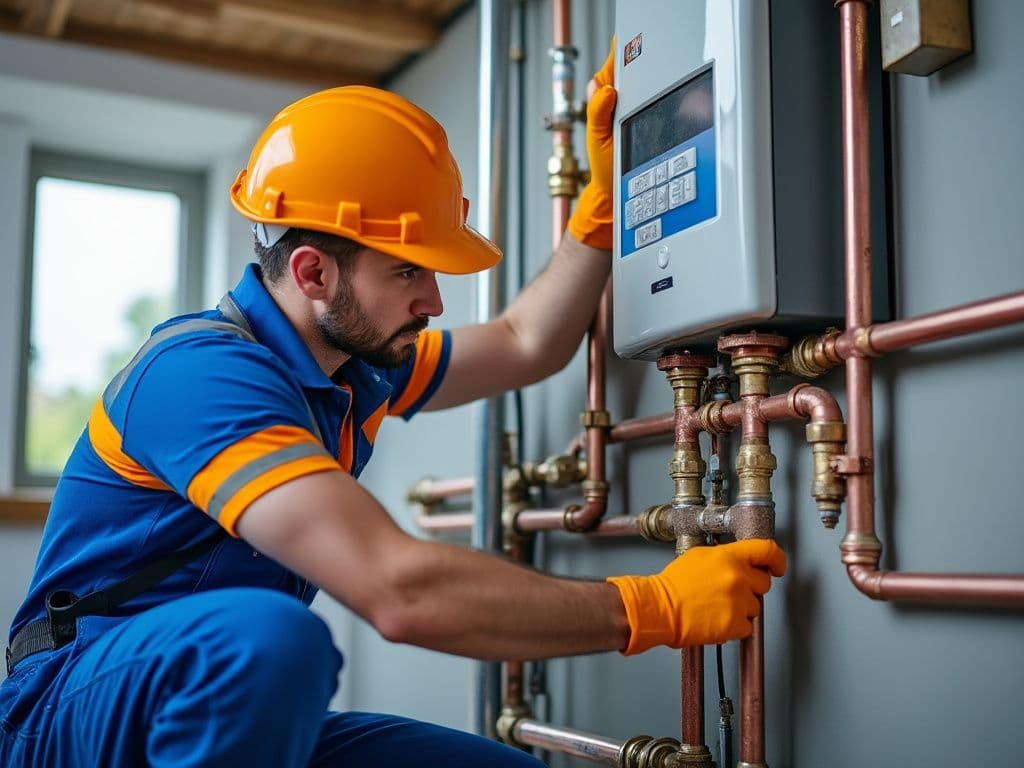
The Rewarding Path of Becoming a Gas Engineer
Gas engineers play a crucial role in keeping our homes and businesses safe and running smoothly. Whether it's heating systems, cookers, or gas-powered appliances, gas engineers are the professionals we rely on to ensure everything is working properly. If you're interested in a stable and rewarding career in the energy sector, becoming a gas engineer could be the perfect fit for you.
What Does a Gas Engineer Do?
Gas engineers are responsible for installing, maintaining, and repairing gas systems in homes, businesses, and industrial settings. Their tasks include fitting gas appliances such as boilers, checking the safety of gas lines, and troubleshooting issues related to gas supply. Gas engineers also ensure that everything meets regulatory standards, keeping consumers safe from potential hazards such as gas leaks or carbon monoxide poisoning.
In addition to domestic systems, gas engineers also work with commercial and industrial systems, which often involve larger-scale installations and more complex maintenance.
Why Choose a Career as a Gas Engineer?
- Job Security and Stability
As the demand for energy continues to grow, skilled gas engineers are always in demand. The need for regular servicing and maintenance of gas appliances makes this an essential industry with job stability across the long term. - Competitive Salary
Gas engineers typically earn strong wages, with an average salary ranging from £30,000 to £45,000 annually, depending on experience and specialization. Those who work on a self-employed basis or in specialized roles can command even higher rates. - Diverse Work Opportunities
Gas engineers can work in a variety of settings, including residential, commercial, and industrial environments. The work is varied, so you won’t be stuck doing the same thing every day. From small residential repairs to large-scale commercial projects, no two jobs are alike. - Hands-On Work with Real Impact
Gas engineers have the unique opportunity to make a direct impact on the safety and comfort of people's lives. Whether you're installing a new boiler, ensuring a home's heating system runs efficiently, or resolving a dangerous gas leak, your work will help people stay safe and comfortable in their homes.
How to Become a Gas Engineer
- Education and Training
A high school diploma or equivalent is typically required to get started as a gas engineer. While you don’t need a degree, completing a gas engineering course at a college or vocational school will provide the theoretical and practical knowledge needed for the job. Training programs typically cover topics such as safety regulations, system installation, and gas appliance servicing. - Apprenticeship and On-the-Job Training
Many aspiring gas engineers enter the field through apprenticeships, where they receive hands-on training while working with experienced professionals. This is a great way to gain practical experience and build the necessary skills. - Certification and Gas Safe Register
In the UK, gas engineers must be certified by the Gas Safe Register, a legal requirement for working on gas appliances and installations. The certification process involves passing an exam and completing a specified number of practical training hours. Maintaining this certification is crucial for ensuring safety and meeting industry standards.
Specializations in Gas Engineering
- Domestic Gas Engineer: Specializes in residential systems, including boilers, cookers, and heating systems.
- Commercial Gas Engineer: Works with larger-scale systems in office buildings, schools, and industrial sites.
- Service Engineer: Focuses on the maintenance and repair of existing gas systems.
- Installation Engineer: Specializes in installing new gas appliances and systems, including piping and connections.
- LPG (Liquefied Petroleum Gas) Engineer: Works with propane and butane systems, typically used in off-grid homes and businesses.
The Future of Gas Engineering
The gas industry is evolving, with new technologies and renewable energy sources becoming more prevalent. While the demand for traditional gas services will continue, gas engineers are also playing a key role in the transition to low-carbon heating systems, such as hydrogen-powered boilers and heat pumps. As these technologies develop, gas engineers will be at the forefront, adapting and evolving with the times.
Ready to Start Your Career in the Trades?
Join our community of successful graduates and take the first step towards your new career.